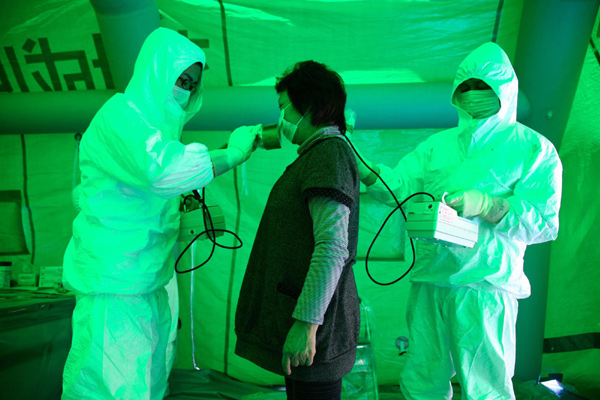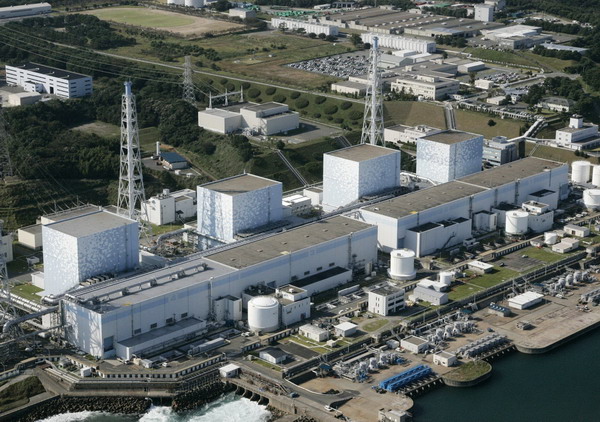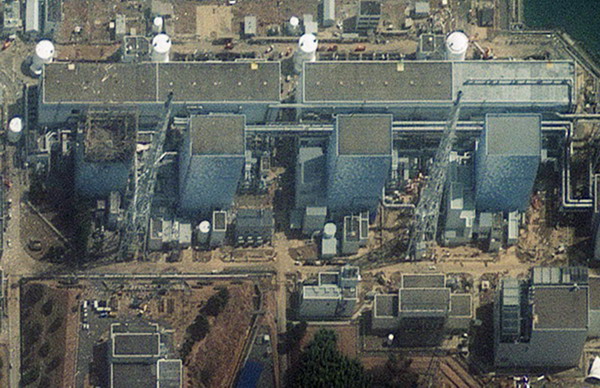Editor's Note: As the Japanese recover from the massive 9.0-scale earthquake and giant tsunami which struck the island on March 11, there is also growing concern over its nuclear safety. With Switzerland and Germany suspending their atomic plans, is it time for the world to reconsider the development of nuclear power?
You can join our debate here (click on the link).
Related stories: Tokyo reports slightly elevated radiation levels
Japan to save nuclear plant from edge of disaster
China suspends approvals for new nuclear plants

Please help us complete the survey.
|
|
||||
Readers' comments:
You can add your own comments here (click on the link) or join the discussion in our forum here (click on the link).
Bad idea from the beginning (blueskies88)
Given Japan's long history of repetitive earthquakes and tsunamis it seems to me that building something so potentially devastating at the edge of nature's Hell gate was absolutely irrational from the onset.
The Mark I plants did not have anywhere enough safety layers for such an imminent disaster!
This is the kind of hubris modern planning has taken man - the same sort of poor safety and planning allowed for the BP Oil spill.
So, the unquenchable desire for power apparently did not allow for the expensive costs of safequarding designs - this seems to be a repetitive theme in the energy business.
No apocalyptic day (DanseMacabre)
There is no doubt something needs to be done to address the safety issues as hightlighted by the Fukushima nuclear meltdown.
However, one should not stop eating for fear of choking, as the Chinese saying goes. As one of the cleanest and most untapped sources, nuclear power still has much potential to offer to human beings.
The important thing now is to limit the damage to the lowest level. Indeed, with constant seawater dilution, the risk of radiation has already dropped.
More importantly, We should learn lessons from this disaster, including the design and the location of future nuclear plants, the prevention mechanism and how to deal with similar harzards, if unfortunately, something familiar happens again.
Alternative is more dangerous (Revolutionar)
If Japan, the United States, or Europe retreats from nuclear power in the face of the current panic, the most likely alternative energy source is fossil fuel. And by any measure, fossil fuel is more dangerous.
The sole fatal nuclear power accident of the last 40 years, Chernobyl, directly killed 31 people. By comparison, Switzerland's Paul Scherrer Institute calculates that from 1969 to 2000, more than 20,000 people died in severe accidents in the oil supply chain. More than 15,000 people died in severe accidents in the coal supply chain. The rate of direct fatalities per unit of energy production is 18 times worse for oil than it is for nuclear power.

Experts' views:
Zhang Monan:Global disaster relief mechanism should be created
The devastation caused by the disastrous 9.0-magnitude earthquake in Japan and the potential risks from radiation leaks at the Fukushima Daiichi nuclear plant once again highlight the urgent need to establish a global disaster emergency relief mechanism. Full Story
Keiji Takeuchi: Can Japan and nuke-power plants coexist?
The massive earthquake that ravaged Japan's northeast region led to the first-ever state of emergency issued for nuclear plants. It is a fresh reminder of the serious latent danger of nuclear power stations, which also raises a fundamental question: How can earthquake-prone Japan coexist with nuclear power plants? Full story
Brahma Chellaney: Japan's nuclear morality tale
The risks that seaside reactors like Japan's Fukushima nuclear plant face from natural disasters are well known. Indeed, they became evident six years ago, when the Indian Ocean tsunami in December 2004 inundated India's second-largest nuclear complex, shutting down the Madras power station. Full story
